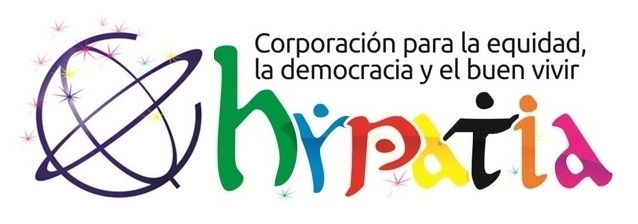This is the fourth article written by students of social communication from Bucaramanga, Colombia, as part of their collaboration with the social/solidarity economy in higher education project. The project aims to make the social economy more visible in the courses, research and practice of universities. In this article Paola Andrea Cogollo writes about Hypatia, an organisation which works for equality, peace and the rights of women through projects around, for example, education, art, ICT and sustainable tourism.
Article in Spanish by Paola Andrea Cogollo, student of social communication, Universidad Pontificia Bolivariana, Colombia
Translated into English by Charles Hanks, UK, collaborator in the social economy in higher education project
What would happen if a more people were to contribute to the quality of other people’s lives, to unite to achieve something impossible for others?
 This is how the Hypatia Corporation came into being, created by a group of women deciding to work collectively for their own interests and those of their families. In keeping with its name, Hypatia was formed by women who are today bringing their knowledge to the group and seeking a modern vision of the role of women in society, just as Hypatia of Alexandria did in the 4th century.
This is how the Hypatia Corporation came into being, created by a group of women deciding to work collectively for their own interests and those of their families. In keeping with its name, Hypatia was formed by women who are today bringing their knowledge to the group and seeking a modern vision of the role of women in society, just as Hypatia of Alexandria did in the 4th century.
By developing different activities with marginalised groups and families, the Corporation tries to reconstruct and repair damage caused by both conflict and social discrimination, promoting the defence of human rights, especially those of women and ethnic groups.
Succeeding in this goal has been complicated for Hypatia, however, since much of their work goes unseen, due to a lack of support from other organisations.
The training, workshops, and other assistance and activities carried out by the Corporation have provided communities with a more complete support programme, not only a training space but what has become a space for mutual growth.
And Hypatia has managed to demonstrate its work by constantly making use of ICT, through its website and social networks such as Facebook and Twitter, which have made the public aware of their development and the results of their experiences within different communities; this is a vital communication tool as it helps the group financially and gives them more visibility in the public sphere.
The group of people behind the whole process must not be forgotten: 13 people who fight daily for a fairer, more humanitarian country, people with a broad social conscience who dedicate a large part of their lives and a great deal of their time to a corporation that pays them, yes, but also rewards them with smiles, hugs and satisfaction from those who receive their help.
It is, for me, gratifying to know that in a country where there is so much violence, big actions like these exist – however small some people may consider them – making this a simpler world for the thousands of families which benefit from the programmes offered by the Corporation. Evidence once again that to be happy, we don’t have to change the whole world.
